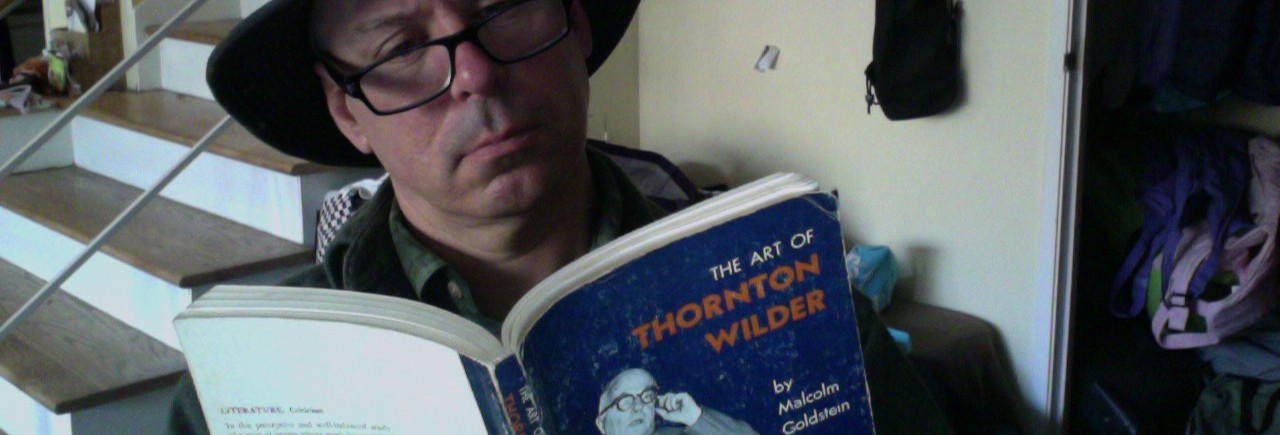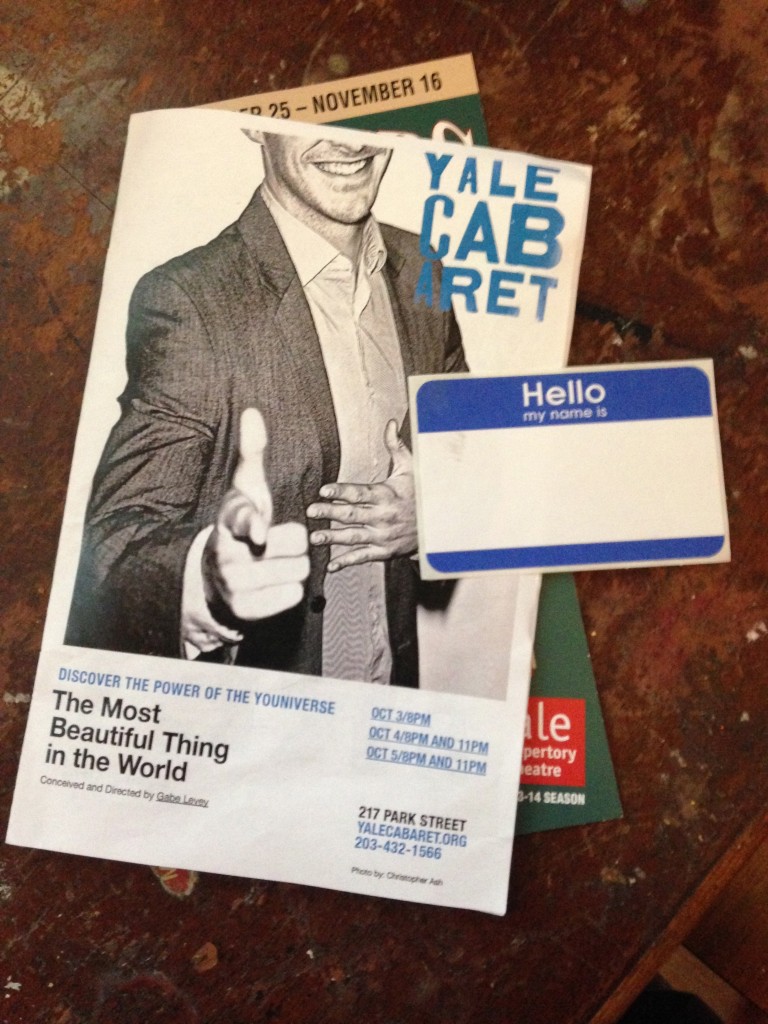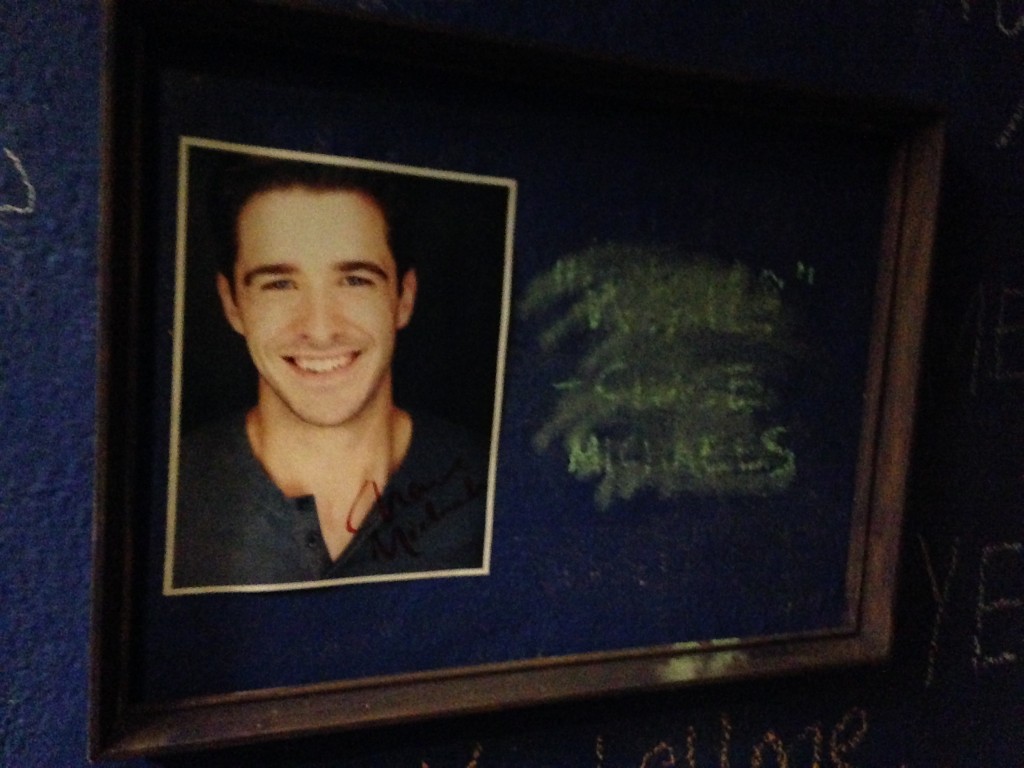The Most Beautiful Thing in the World
Closed. Oct. 3-5 at the Yale Cabaret, 217 York St., New Haven. (203) 432-1566, www.yalecabaret.org
Concept, direction and Projection Design by Gabe Levey. Scenic designer: Kurtis Boetcher. Costume designer: Soule Golden. Sound Designer: Tyler Kieffer. Stage Manager: Anita Shastri. Technical Director: Lee O’Reilly. Producer: Alyssa Simmons. Creative Collaborators: Mickey Theis, Mitchell Winter. Projection Engineer: Nick Hussong. Performed by Kate Tarker (Carol), Chase Michaels (himself, though Michaels bears a striking resemblance to actor Dan O’Brien), and Anita Shastri (Stage Manager/Sound Booth engineer).
The advantage of not being able to see The Most Beautiful Thing in the World until its final performance (two weekends ago now, Saturday at 11 p.m.) is that I don’t have to worry about spoilers.
(If you’re reading this because some theater other than the Yale Cabaret has seen fit to perform this curious and remarkable show, be forewarned that I’ll be giving away some of its surprises.)
From what I’ve gleaned from seeing a few examples of Gabe Levey’s work at the Yale Cabaret and Yale School of Drama, he embraces danger elements. As a co-director of last year’s absurdist Cabaret take on Brecht’s Lindbergh’s Flight, he deliberately punctuated the production with regular bouts of corpsing, the usually unpredicatable process through which actors break into spontaneous giggles while performing. When a major set change was slow to grind into place at one performance of Cloud Nine at the School of Drama last year, rather than flee the stage and wait patiently for the techies to fix the problem, Levey stayed onstage and cavorted merrily, in costume as a little girl, entertaining the audience until the show could back on. And in the childlike, dreamlike Brainsongs, which Levey wrote and starred in at the Cabaret two seasons back, he regularly invited audience interaction at times when the responses could not be guaranteed.
That same danger element of uncertainty is at the heart of The Most Beautiful Thing in the World, which Levey conceived and directed but does not personally appear in. The ostensible star of the show is Chase Michaels, the celebrated self-help guru and author of YOUniversally Speaking, Chase Michael’sBig Book of Chinese Proverbsd and Oh My God! My YOUniverse! Chase Michaels is a smarmy, smiley postitivist-with-teeth similar to the role Tom Cruise played in the Paul Thomas Anderson film Magnolia, and also familiar from countless real-life spiritual-healing hucksters in late-night infomercials.
But the much-hyped Chase Michaels doesn’t show up. Instead, the jittery yet devout disciple Carol, charged with introducing this titan of self-worth, must instead fight to hold the attention of the crowd. Played by the slender and prettily apoplectic Kate Tarker, Carol at first panics, then gradually takes control, remembering key Chase Michaels mantras and delivering them with as much gusto as she can summon.
But Levey’s framework here is meant to parody this particular presentational form of motivational therapy, not necessarily its content. During the course of her impromptu presentation, Carol has a personal revelation, a breakthrough which helps her overcome her own self-doubt but which also convinces her that Chase Michaels is full of hot air.
Then—Spoiler! Spoiler! Not to mention extraordinary late-in-show deus-ex-machina breathtaking theatrical device!—Chase Michaels finally shows up, and there’s a showdown between him and Carol. This ending could be a whole lot more obvious. But as we’ve glimpsed Carol’s enlightenment and empowerment with our own eyes, it’s a much more interesting debate—not about revenge, not about comeuppance, but about the Most Beautiful Thing in the World: self-knowledge.
Throughout this truly thoughtful and improvisationally open-ended endeavor, The Most Beautiful Thing in the World never scuttles its optimistic nature. That’s remarkable for a show that could so easily be less layered, less deep and less real. Either way, it’s tremendously entertaining.
The Yale Cabaret was dark last weekend. It returns Thursday, Oct. 17-19 with Beginners by Raymond Carver; or, What We Talk About When We Talk About Love, a new work which explores not just the classic Carver short story but the writing and editing process which created it. WWTAWWTAL is adapted by Phillip Howze and directed by Andras Viski.


